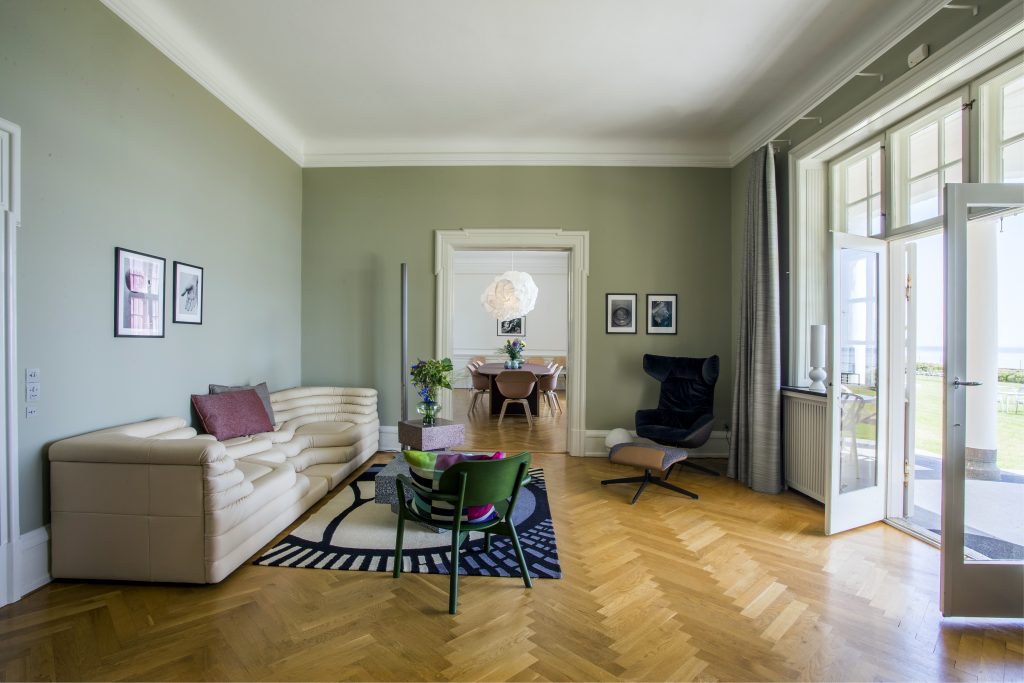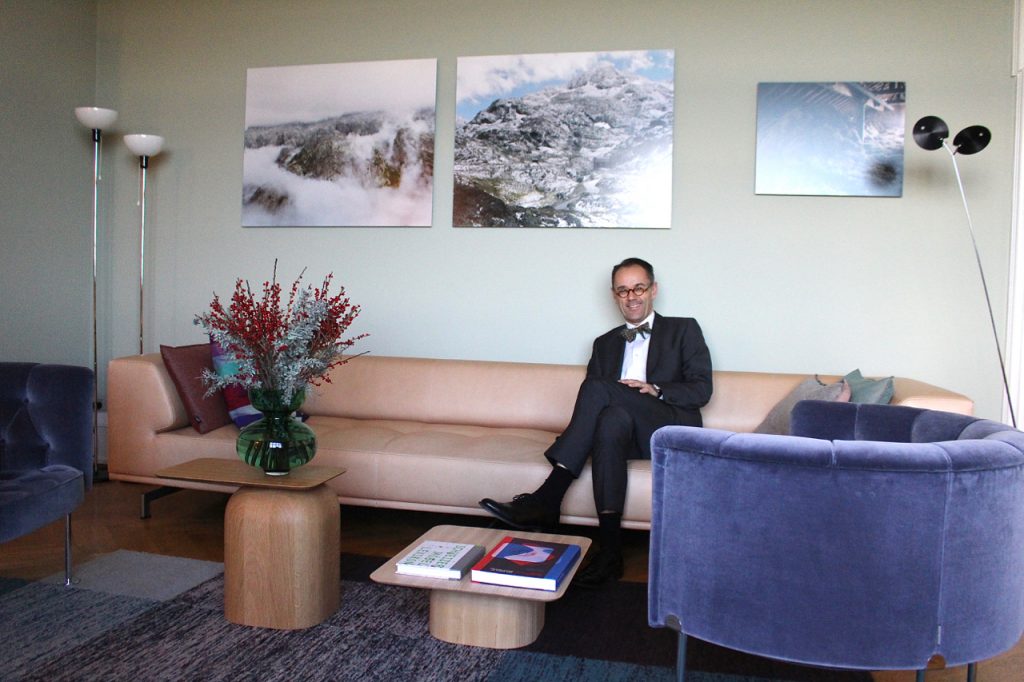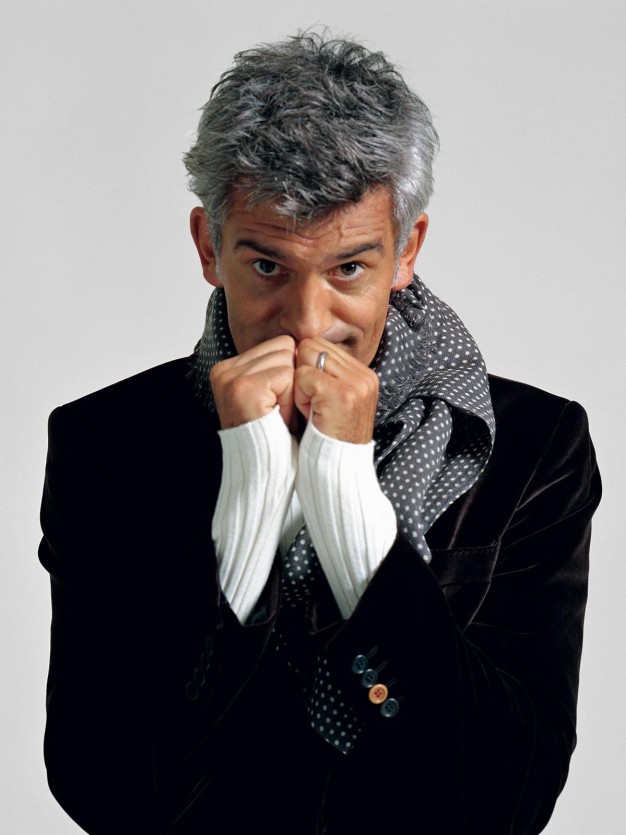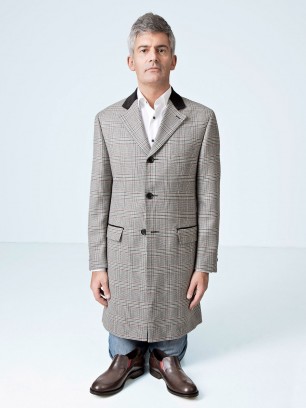Designer Alfredo Häberli has created a Swiss Gesamtkunstwerk with the best of the best from his own home country.
By Camilla Alfthan
THE SCENE of this contemporary space is situated in the outskirts of Copenhagen in the residence of the Swiss embassy – a 19th century house facing the sea which is inhabited by Benedikt Wechsler; an ambassador with a penchant for sports and modern design. Dressed in tailored suits and matching bowties he cycles to meetings on a renovated Swiss bicycle from the forties, complete with batteries. A breath of fresh air has also blown through the formerly conservative residence which has been turned into the coolest home on the block. The most iconic piece of furniture is perhaps Ubald Klug’s creme coloured Sofa Terrazza from 1972 which is juxtaposed with an asymmetric coffee table made of fake granite. Its’ hedonistic design of the seventies evokes images of the pop culture of the epoch.
“I received a call from Bern saying that the sofa is not embassy like. I had to reassure them that the ambassador does not smoke pot. If I did not have some humour I would not be doing this,” tells Alfredo Häberli with a laugh.
Ubald Klug’s not very embassy like Sofa Terrazza is in for a revival. In the adjoining room Frank O. Gehry’s cloud shaped lamp from Vitra hovers over the dining table.
As the curator of the project he imposed an important rule : All interiors had to be designed or produced in his native Switzerland and of the very best quality.
“I could not buy textiles just because they were inexpensive or choose a furniture cover because it was practical. At first I put a lot of pressure on myself, thinking that the Swiss design had to stand up to the Danish masters such as Wegner and Jacobsen which seemed an impossible task. But then I looked at contemporary design and I realized that Switzerland is doing better than the Danes. Our design is stronger,” he says.
Traditionally, the Swiss style is rational and functional. Colours are muted and the furniture is made using as little material as possible which is often aluminium. “It is a little cold and not very cosy if you don’t count the wooden chalets in the mountains. We don’t have the hygge of Denmark,” Häberli explains.
“At first I put a lot of pressure on myself, thinking that the Swiss design had to stand up to the Danish masters which seemed an impossible task. But then I looked at contemporary design and I realized that Switzerland is doing better than the Danes. Our design is stronger”
As a Swiss born in Argentina Alfredo Häberli prefers colors and warm material such as wood and velvet. Instead of the usual white walls, a Scandinavian classic, he painted each room in different pastel colours and picked design favourites from Swiss companies such as Vitra. He also selected things from his own studio including his iconic Moreso chairs and the humouristic Jill Tube which is made of aluminium tubes wrapped in knits.
Benedikt Wechsler in his Swiss surroundings which include Häberli’s elegant Moreso chairs and photographs from Fotostiftung Schweiz. Ph. C.Alfthan
As a design project the embassy is a first of its kind.
“Design is a cultural statement. In Denmark and Finland it was always used to market the country but we’re still not quite there though we have good designers and very good architects,” says Häberli who also included the garden in his Gesamtkunstwerk, filling it with Swiss furniture from different epochs. On the terasse there’s Hans Coray’s Landi chair from 1939 with polka dotted holes and another sculptural chair is Loop of 1954. Together with the eternit furniture on the lawn which absorb the heat of the sun they are testaments to the longevity of Swiss ingenuity. ©
Humour, a dash of colour and shoes (for the Swiss brand, Bally) are a part of Alfredo Häberli’s signature designs.







